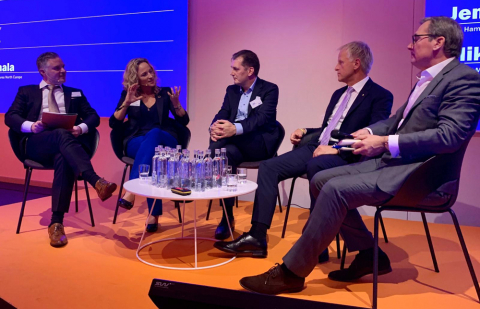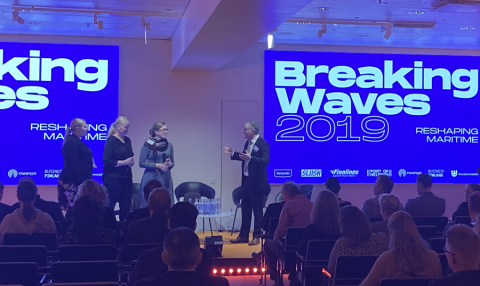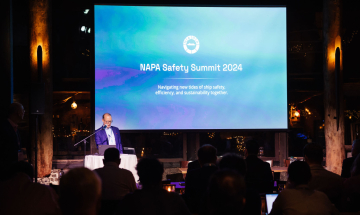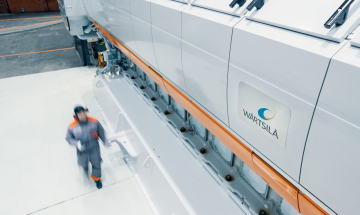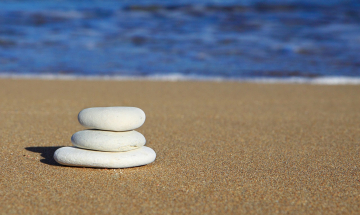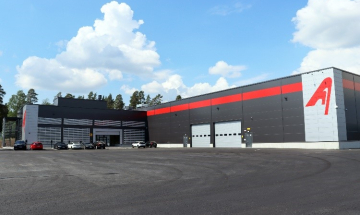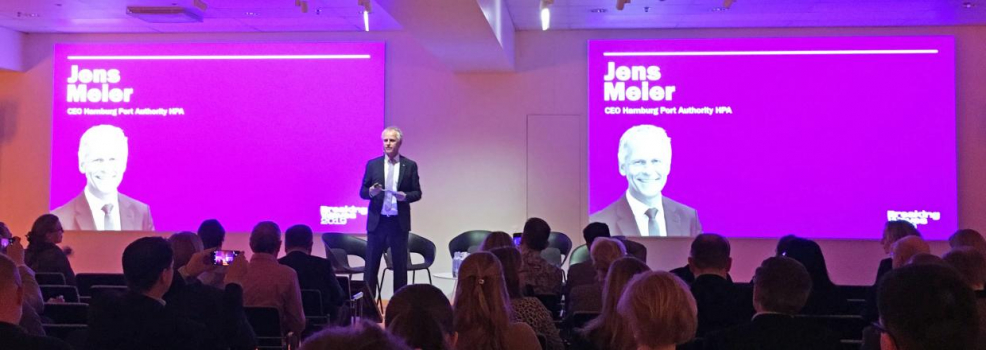
Breaking Waves took a look into the future of the European maritime cluster: towards smart and emission-free maritime logistics
The Breaking Waves conference took place on November 21st in Helsinki, as a part of the world leading start-up event Slush. The renowned buzz of Slush was present also at the maritime conference, as leaders and influencers of the industry gathered to discuss the future challenges of the maritime cluster.
The themes of the conference this year where optimization of the logistic chain and ecosystems. The main issue became, how these can be utilized to developed even more environmentally friendly and efficient maritime logistics. The keynote speakers were internationally recognized names such as Emanuele Grimaldi of Grimaldi Group, Jens Meier of Port of Hamburg and Pia Meling of Massterly. Emanuele Grimaldi’s speech highlighted the ambitious targets for cutting emissions and even vessels that are emission-free. “While shipping is already today the most efficient method of moving goods and people around the world, its green bar will be set higher and higher.” Grimaldi stated in his speech. Meier focused on utilizing digitalization and making port operations more effective with the help of the innovative SmartPort-system. Meling spoke about the enormous potential that the development of automation can have in cutting emissions and improving safety.
The program also included presentations of the innovation platform Maritime Accelerator programme, which in the spirit of Slush, combines the most interesting growth companies of the maritime industry with established industry leading businesses. Like last year, there was a Think Tank event in combination with the conference, that was aimed exclusively at the central leaders and influencers of the industry.
During the speeches and panel conversations throughout the conference day, it was clear that the common challenge and aim of the entire maritime cluster is reduction of emissions. In order to reach this goal, further collaboration and sharing of knowledge and data were considered important. Another major challenge that was identified, was communication. The panellists called for openness, transparency and better engagement with the public, in order to communicate the effort of the industry that are already being made to meet climate- and environmental goals. In addition to ambitious targets, there is a need for development of new technology and innovations, for the industry to be able to meet the challenge that climate change is setting. Making use of artificial intelligence and platforms to enhance efficiency in maritime logistics was considered a future trend in the sector. Ecosystems were believed to foster sharing of knowledge and help create innovations for maritime logistics.
In conclusion, it was stated that from the European maritime cluster’s perspective, the challenges can also be seen as opportunities. Despite sometimes being accused of conservatism, the industry is forward looking and actively developing innovations and implementing new technology. The European maritime cluster has potential to play a significant role, in reaching the environmental goals of the global industry.
Text: Maj Jäntti, Finnish Shipowners' Association

